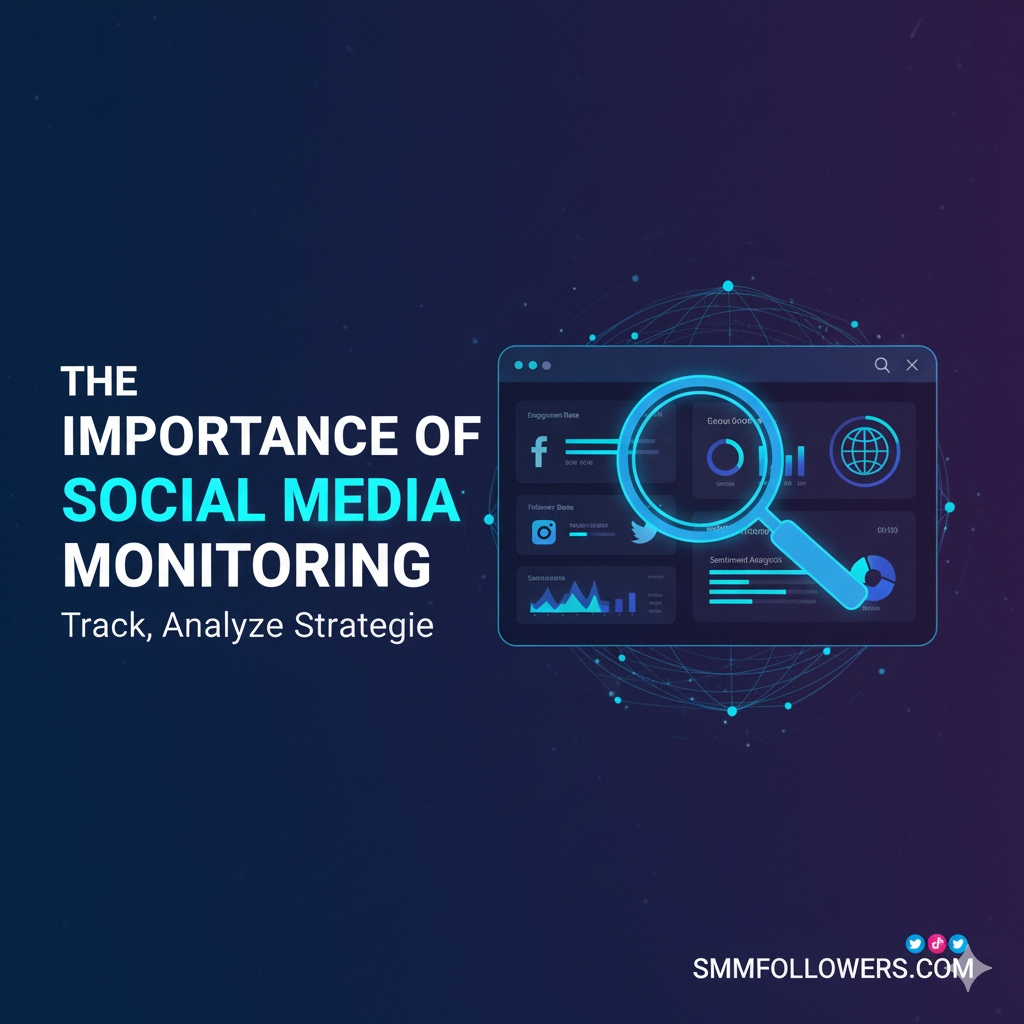The Importance of Social Media Monitoring for SMM Panel Businesses
Running an SMM panel today is not just about delivering followers, likes, or views. It’s about maintaining trust, stability, and reputation in an industry where people talk—a lot.
And they don’t always talk directly to you.
They talk on Reddit, Telegram groups, Instagram comments, YouTube reviews, and forums. That’s why social media monitoring has become one of the most important systems behind successful SMM panel businesses.
Panels that grow long term aren’t just focused on services. They focus on what people are saying about those services — in real time.
Social Media Monitoring Definition
Social media monitoring, also known as social listening, is the process of tracking your brand's mentions, conversations, keywords, and general conversation across social networks and online communities.
For an SMM panel, this includes monitoring:
Your brand name
Service-related complaints
Discussions about drops or delivery speed
Competitor reviews
Questions people ask about panel safety
Unlike general analytics, social media monitoring is about awareness and reaction. It helps businesses respond before small issues become reputation damage.
Why Social Media Monitoring Matters for SMM Panels
1. Reputation Protection
Imagine users begin saying:
“This panel’s followers dropped too fast.”
If you do not have a monitoring system in place, you may not see this conversation until sales decline. By then, the damage has happened.
Monitoring allows you to:
Spot patterns early
Check which service is causing the issue
Update descriptions or refill policies
Fix supply sources
2. Understanding Customer Pain Points
Most panels assume they know what users want. Monitoring shows the truth.
Common discussions users have:
Why is my order delayed?
Are refills guaranteed?
Is this service safe?
Why do followers drop?
Using monitoring, you can turn these into clearer FAQs, better onboarding pages, improved blog content, and fewer support tickets.
3. Competitor Insight
Monitoring is not only about your brand. Smart panels track competitor mentions to learn where others fail and what users dislike.
4. Content & SEO Opportunities
Every public question becomes a content idea.
If many users ask “Are SMM panels safe?” or “Why do followers drop?” you now have SEO-driven blog topics based on real demand.
How Social Media Monitoring Improves Conversions
When your website reflects real customer language and concerns, visitors feel understood. This builds trust and increases conversions.
Simple Monitoring Workflow for SMM Panels
Set alerts for brand and service keywords
Check mentions daily
Log recurring issues
Update service pages or FAQs
Respond where needed
Tools Used for Social Media Monitoring
Brand24
Mention
Sprout Social
Google Alerts
Reddit and forum search
Common Mistakes Panels Make Without Monitoring
Ignoring small complaints
Letting misinformation spread
Not updating services after feedback
Missing competitor weaknesses
User Questions About Social Media Monitoring
How fast does social media monitoring show results?
Early insights appear within days. Measurable impact on conversions and trust usually appears within 1–3 months.
Is social media monitoring expensive?
No. Many tools scale based on business size. Even low-cost tools provide strong value.
Does monitoring replace customer support?
No. Monitoring supports support. It helps solve issues before they become tickets.
Can monitoring help SEO?
Yes. It shows real search intent and user questions, which improves blog and landing page content.
Final Thoughts
In the SMM panel industry, silence doesn’t mean satisfaction. Conversations are happening somewhere else.
Social media monitoring allows panels to listen, improve services, protect reputation, and grow sustainably. Modern platforms like SMMFollowers.com understand that growth is not only about delivery speed—it’s about awareness, trust, and continuous improvement.
If you want long-term stability, monitoring is not optional. It’s operational.
